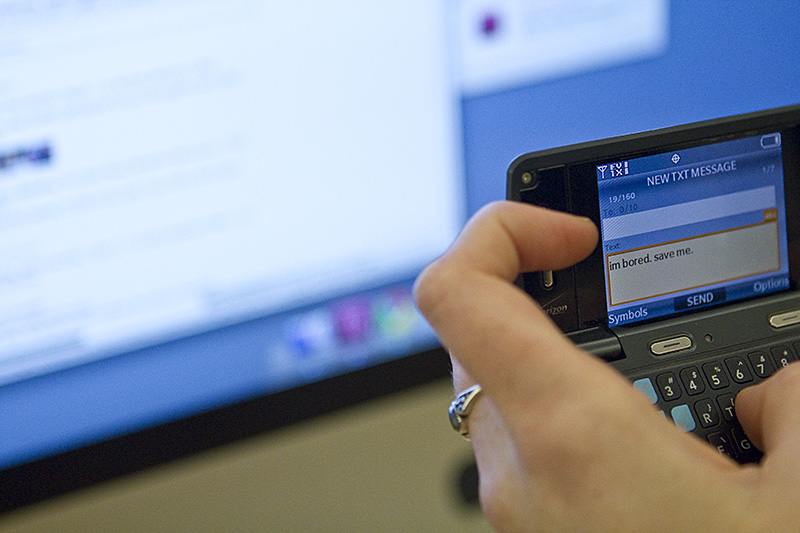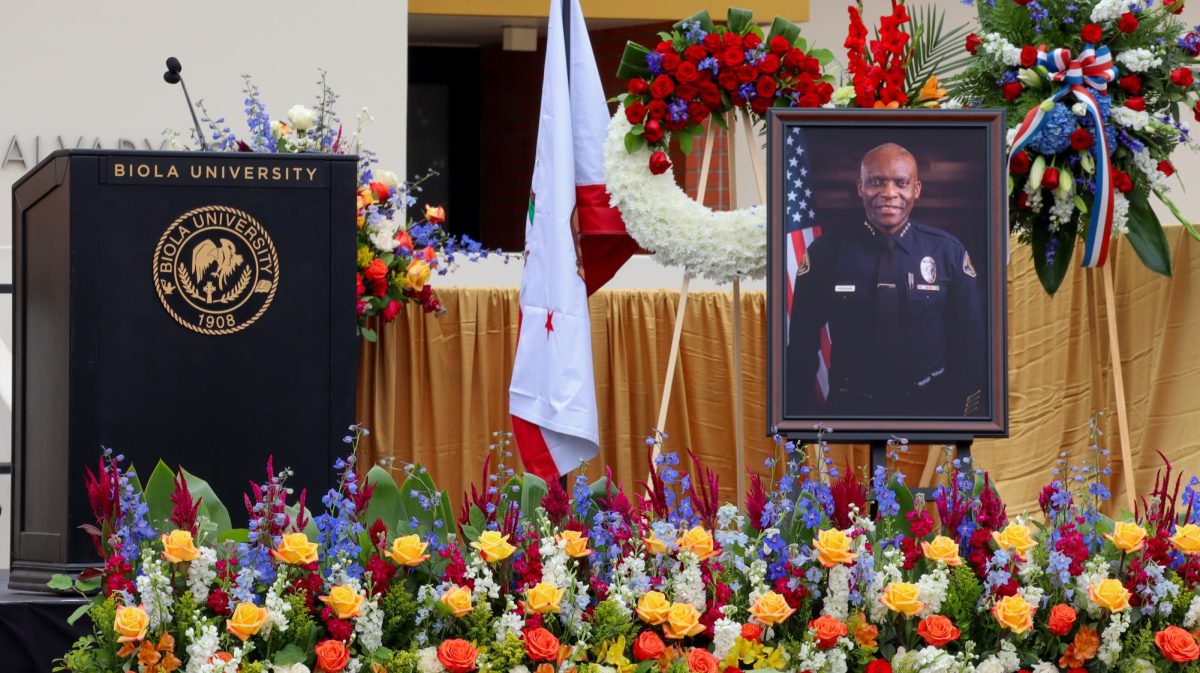A University of New Hampshire study revealed that 80 percent of its students send at least one text message in every class — a habit Biola students say they share.
The study, which was released in February, was organized by the UNH business school and tested 1,000 university students. While most of these students expressed guilt about texting in class, 40 percent said that texting in class should be allowed. Some 37 percent of students disagreed and said that texting in class should not be allowed, while 23 percent were neutral.
The students conducting the survey concluded that texting in class did in fact distract students, and that female students were more prone to text in class than male students.
Biola students follow suit
At Biola, texting in class is no rare occasion. Some professors and students agreed that the majority of students send text messages while in class or have in the past.
Junior Aaron Engel said he usually sends two or three text messages per class, but never carries on a full conversation.
“I’ll get texts and read them and see if they’re important,” Engel said. “If they are, I’ll answer. If it’s something that can wait, I’ll wait.”
He said that he does not feel guilty about texting during instruction time because it only hurts himself, but understood that professors most likely feel they are not doing their job well enough when they see their students texting.
To text or not to text
On the other hand, freshman Hanna Spano said that she does not text in class because she does not want to miss anything important. Her Razor cell phone, which she described as “not a good texting phone” and her preference to remain out of trouble also contribute to reasons for not texting.
“It probably bothers [teachers]. If students get low test scores and complain, well, they weren’t paying attention,” Spano said. “It’s their fault, not the teacher’s.”
Spano also said that those who text in class on a regular basis probably do not feel any guilt towards their texting. She said that when a student’s phone goes off in class, most professors just ignore it instead of addressing the student directly.
Professors weigh in
Even though most professors ignore students who text in class, some Biola professors said it does affect them. “As a professor I would say that I wouldn’t appreciate [texting in class] because when you are lecturing you want to feel that you are engaging and have students’ full attention,” said Tracey Hoover, assistant professor of sociology. “We put effort into trying to prepare our lectures.”
Hoover said texting in class does not distract her, but it does offend her. She said it is best to inform the professor before class in certain circumstances when having a phone on is necessary. While Hoover does not address students directly in class if they are texting, she said she would pull them aside to discuss the issue if it happened continually.
Personal policies
While Biola’s student handbook does not address the issue of cell phone use in class, many teachers hold their own views. Some professors will tell students to put their phones away if they hear it ring in class or will not address it if it does not cause a distraction, but others have more unique cell phone policies for their classes.
Matthew Weathers, professor of nature of math holds the policy of answering his students’ phones if they ring in his class and allowing his students to answer his own phone if it were to ring in class.







